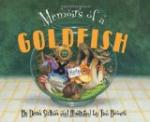Let us take a shot at a few dates. I will make it childishly easy. Give me, if you can, even approximately, the year of Caesar’s Conquest of Gaul; the Invasion of Europe by the Huns; the Sack of Rome; the Battle of Chalons-sur-Marne; the Battle of Tours; the Crowning of Charlemagne; the Great Crusade; the Fall of Constantinople; Magna Charta; the Battle of Crecy; the Field of the Cloth of Gold; the Massacre of St. Bartholomew; the Spanish Armada; the Execution of King Charles I; the Fall of the Bastile; the Inauguration of George Washington; the Battle of Waterloo; the Louisiana Purchase; the Indian Mutiny; the Siege of Paris.
I will look out of the window while you go through the mental agony of trying to remember. It looks easy, does it not? Almost an affront to ask the date of Waterloo! Well, I wanted to be fair and even things up; but, honestly, can you answer correctly five out of these twenty elementary questions? I doubt it. Yet you have, no doubt, lying on your table at the present time, intimate studies of past happenings and persons that presuppose and demand a rough general knowledge of American, French or English history.
The dean of Radcliffe College, who happened to be sitting behind two of her recent graduates while attending a performance of Parker’s deservedly popular play “Disraeli” last winter, overheard one of them say to the other: “You know, I couldn’t remember whether Disraeli was in the Old or the New Testament; and I looked in both and couldn’t find him in either!”
I still pass socially as an exceptionally cultured man—one who is well up on these things; yet I confess to knowing to-day absolutely nothing of history, either ancient, medieval or modern. It is not a matter of mere dates, by any means, though I believe dates to be of some general importance. My ignorance is deeper than that. I do not remember the events themselves or their significance. I do not now recall any of the facts connected with the great epoch-making events of classic times; I cannot tell as I write, for example, who fought in the battle of the Allia; why Caesar crossed the Rubicon, or why Cicero delivered an oration against Catiline.
As to what subsequently happened on the Italian peninsula my mind is a blank until the appearance of Garibaldi during the last century. I really never knew just who Garibaldi was until I read Trevelyan’s three books on the Resorgimento last winter, and those I perused because I had taken a motor trip through Italy the summer before. I know practically nothing of Spanish history, and my mind is a blank as to Russia, Poland, Turkey, Sweden, Germany, Austria, and Holland.
Of course I know that the Dutch Republic rose—assisted by one Motley, of Boston—and that William of Orange was a Hollander—or at least I suppose he was born there. But how Holland came to rise I know not—or whether William was named after an orange or oranges were named after him.




